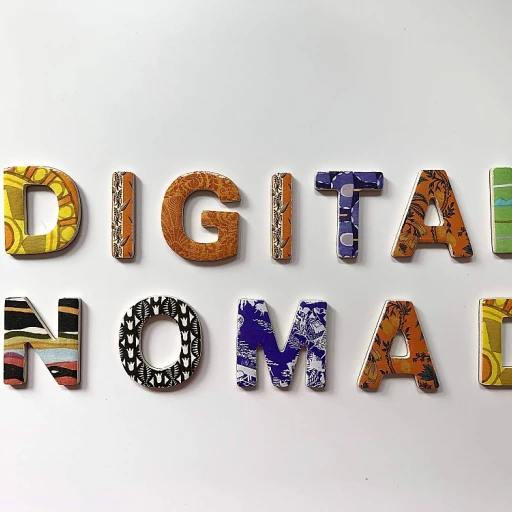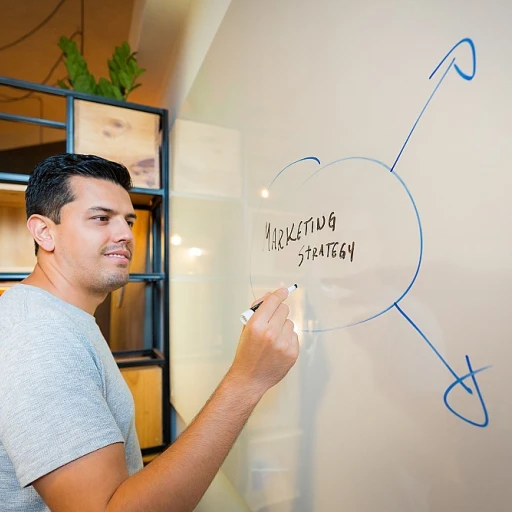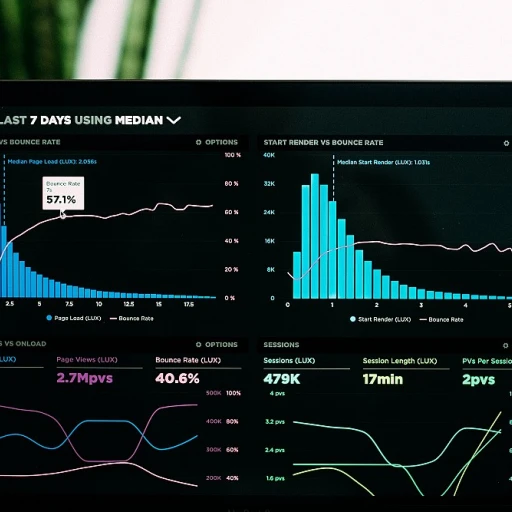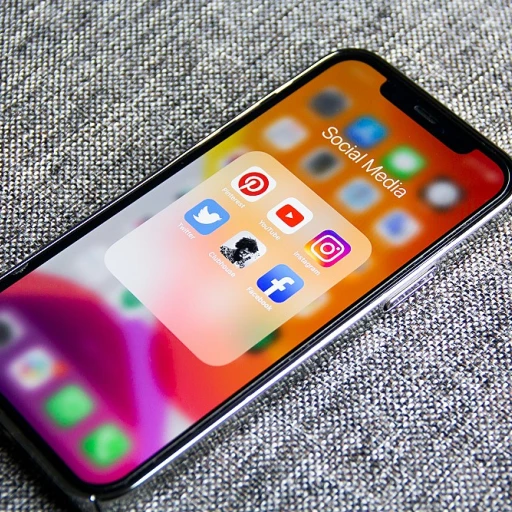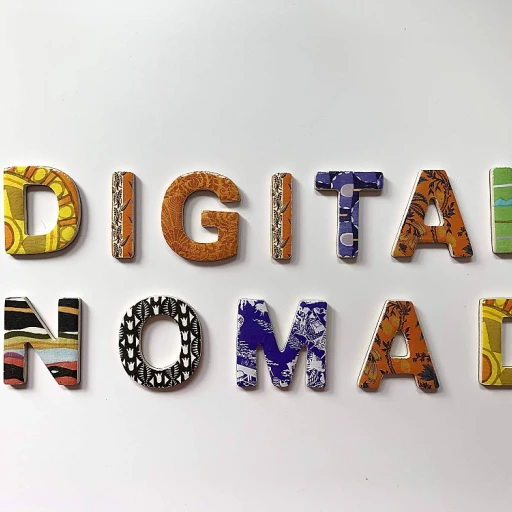What Sets Influencers Apart from Content Creators?
Defining the Unique Characteristics
In the dynamic world of social media, understanding the unique characteristics of influencers and content creators is essential for navigating the digital landscape. While both play pivotal roles, they have distinct functions that set them apart.
Influencers are individuals who have built a substantial following on social media platforms and possess the power to affect the purchasing decisions of their audience. Their strength lies in their ability to connect with followers on a personal level, often sharing glimpses of their daily lives, opinions, and recommendations. This personal connection is what brands leverage when they engage in influencer marketing, as explored further in the section on how influencers can transform brand strategies.
On the other hand, content creators focus primarily on the production of high-quality, engaging content. Their expertise lies in crafting visually appealing or thought-provoking material that captivates audiences. Whether through photography, video, or written content, creators aim to tell a story or convey a message that resonates with their audience. This dedication to the art of content creation forms the core of digital engagement, which we delve into in a later section.
While influencers and content creators may overlap in their roles, each brings a unique value to the table. As the lines between these roles continue to blur, it's crucial for brands to understand these differences to choose the right strategy for their needs. For those interested in exploring the nuances of authenticity in content creation, crafting authenticity in content creation offers valuable insights.
The Impact of Social Media Channels on Influencers and Content Creators
Social media platforms play a crucial role in distinguishing the work and reach of influencers compared to content creators. Each platform tends to cater to a different type of audience, format, and engagement strategy, which influences how individuals establish and maintain their online presence.
For instance, Instagram and TikTok are vibrant spaces where influencers often thrive, thanks to their visual-centric nature that appeals to the masses. Unlike traditional content creators who may focus operatively on expressive storytelling or in-depth content forms, influencers leverage these platforms for their real-time interaction capabilities, creating direct lines of communication with followers. This approach helps solidify trust and build communities around compelling visuals and authentic narratives.
Content creators, on the other hand, might focus more heavily on platforms like YouTube or blogs where they can develop longer-form content and present more detailed scripts and narratives. These settings allow creators the space to engage audiences in a more immersive way. The consistent output of high-quality media content helps in scaffolding an elaborate and versatile digital presence.
However, it’s also essential to notice that both influencers and content creators share a middle ground and influence each other’s realms. The challenge and opportunity derive from how versatile their use of these platforms can be, switching roles when necessary to capitalize on their audiences’ preferences.
Understanding this synergy and choosing the right platform for either building influence or creating content can significantly affect the outcome of any strategy involving social media. To gain a deeper insight into crafting authentic content tailored for these networks, check out
The Influencer's Palette: Crafting Authenticity in Content Creation.
The connection between a chosen platform and the strategy you deploy can be a differentiator in achieving robust engagement and effective brand communication. Influencers and content creators must weigh these factors carefully to efficiently reach and resonate with their target audience through the most appropriate channels.
Influencer Marketing: A Game Changer for Brands
The Power of Partnership: How Influencer Marketing Transforms Brands
In the intricate dance of digital marketing, influencer marketing has emerged as a transformative force for brands aiming to connect with audiences in authentic and relatable ways. While content creators focus on producing engaging and high-quality content, influencers boast the ability to reach vast audiences, often wielding a substantial impact on their followers' purchasing decisions.
The value of leveraging influencers lies in their established trust and rapport with their audience, making them a strategic asset for brands seeking to enhance their credibility and extend their reach. When an influencer endorses a product or service, it’s portrayed as a personal recommendation rather than a direct advertisement. This nuanced approach makes the audience more receptive and open to trying out what’s being recommended.
Unlike traditional advertising channels, influencer marketing is inherently more interactive and dynamic. Platforms like Instagram, YouTube, and TikTok offer exciting opportunities for brands to creatively engage potential customers through influencers who tailor their content to match the brand’s identity. This collaboration can take many forms, from sponsored posts and product reviews to more immersive experiences like live events and takeovers.
However, the effectiveness of an influencer partnership depends on aligning the brand’s values with the influencer’s personal brand and audience interests. As discussed in
strategic insights for rising social creators, evaluating the relevance of an influencer’s audience and their connection to your brand’s offerings is vital.
With the lines increasingly blurring between influencers and content creators, brands that effectively leverage influencer marketing stand to gain significantly. This does not only amplify their reach but also fosters a community of loyal followers who resonate with the brand’s message. As we explore further, identifying the right approach and the distinction between influencers and content creators becomes indispensable for a cohesive digital strategy.
Content Creation: The Heart of Digital Engagement
The Essence of Digital Connections
In the vast landscape of digital marketing, content creation undeniably forms the backbone of audience engagement. At its core, content creation is all about storytelling, creativity, and building a genuine connection with the audience. Unlike influencers who often focus on promoting brands and products, content creators prioritize crafting narratives that resonate deeply with their followers.
One of the most notable distinctions of content creation is the emphasis on originality. Content creators spend significant time conceptualizing and producing unique and visually compelling content. Their work ranges from blog posts, videos, podcasts, to art and photography, each medium serving as a canvas for their imagination and message.
Additionally, content creation thrives on authenticity. This authenticity isn't just a buzzword; it's a key factor that determines the success of digital engagement. Audiences are drawn to relatable, honest content that reflects real-life experiences and values. As the digital space becomes increasingly saturated with promotional content, this genuine touch sets content creators apart and fosters loyalty among their audience.
Platforms like YouTube, Instagram, and TikTok have become quintessential tools for content creators. These platforms provide the perfect opportunity to reach global audiences, offering features that allow creators to showcase their talents and earn revenue through ad monetization and sponsorships. Understanding the algorithms and nuances of these platforms is crucial, as it can either amplify or stifle a creator’s reach.
While influencers focus on their ability to sway consumer behavior, content creators are the heart of sustained digital engagement. They maintain a strategic edge by consistently providing value through educational, entertaining, or inspirational content that keeps audiences coming back for more. This ongoing relationship-building approach not only enhances audience retention but also expands the creator’s influence in the digital realm.
Although the lines between influencers and content creators can sometimes blur, understanding the unique contributions of content creators to digital engagement helps brands choose the right individuals to elevate their message and impact.
Blurring Lines: When Influencers Become Content Creators
Intertwining Roles: Influencers and Content Creators Converge
In the ever-evolving realm of digital marketing, the lines between "influencer" and "content creator" are becoming increasingly blurred. As social media continues to mature, both roles are adapting, often converging into a singular entity that embraces qualities of both worlds.
Influencers, traditionally seen as individuals who shape opinions and drive consumer behaviors, are diving deeper into the essence of content creation. They're recognizing the undeniable power of authentic, engaging material, spurring them to invest more in the art of storytelling, visual aesthetics, and strategic communication. As highlighted in the fourth part of this series, content remains the cornerstone of digital interaction. This shift demonstrates a broader understanding of engagement beyond mere influence.
Conversely, content creators, known for their craft and creativity, are expanding their horizons by stepping into the influencer's domain. By fostering strong, genuine connections with their audience, they're harnessing their influence and opening new avenues for brand partnerships. By nurturing community trust and relatability, these creators are not only showcasing their talents but also demonstrating their potential for influence.
The confluence of these roles highlights a mutual learning curve and a strategic advantage for both influencers and content creators. Brands and marketers are taking note, exploring ways to leverage this hybrid model to maximize their reach and engagement strategies. As they navigate these shifting dynamics, businesses must decide how to harness the strengths of both creators and influencers effectively.
Ultimately, both influencers and content creators bring unique value to the table. While they may originate from different starting points, their collaborations and confluence have the potential to redefine the digital landscape, offering insights into crafting powerful narratives and forging meaningful connections.
Choosing the Right Strategy for Your Brand
Crafting a Strategic Approach that Resonates
In the bustling world of social media, brands have the unique opportunity to harness the power of both influencers and content creators. As businesses look to enhance their online presence, the key to success lies in choosing the right strategy that aligns with their brand's goals and values. But how do you make that choice?
When it comes to selecting the right approach for your brand, it's essential to define your objectives clearly. Are you aiming to boost brand awareness or drive immediate sales? Given their substantial followings and established trust with their audiences, influencers can be an excellent choice for amplifying brand visibility in the short term. Their reach and credibility make them ideal partners for driving product launches or promotional campaigns, as illustrated in the significance of influencer marketing.
On the other hand, if your focus is on creating long-lasting, meaningful engagement with your audience, collaborating with content creators could be more effective. These creators, with their focus on quality and creativity, excel at producing content that resonates deeply with niche audiences. They can cultivate an authentic community around your brand, which is critical for building loyalty and driving sustained engagement.
However, the lines continue to blur between influencers and content creators, and it's becoming increasingly common for brands to leverage a hybrid strategy. This involves collaborating with influencers who are also content creators, offering the best of both worlds by combining reach with rich, engaging content creation.
Ultimately, selecting the right strategy involves a careful balance of your brand's specific needs, the nature of your target audience, and the unique strengths of the influencers and content creators you consider working with. It's a dynamic landscape that requires flexibility, experimentation, and ongoing evaluation.




